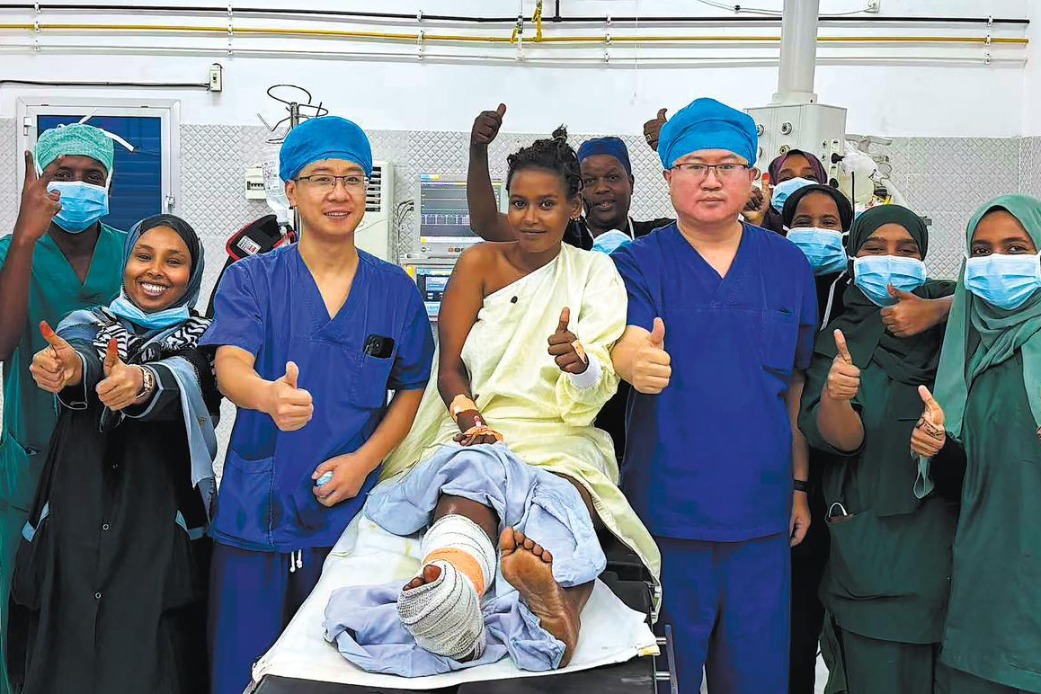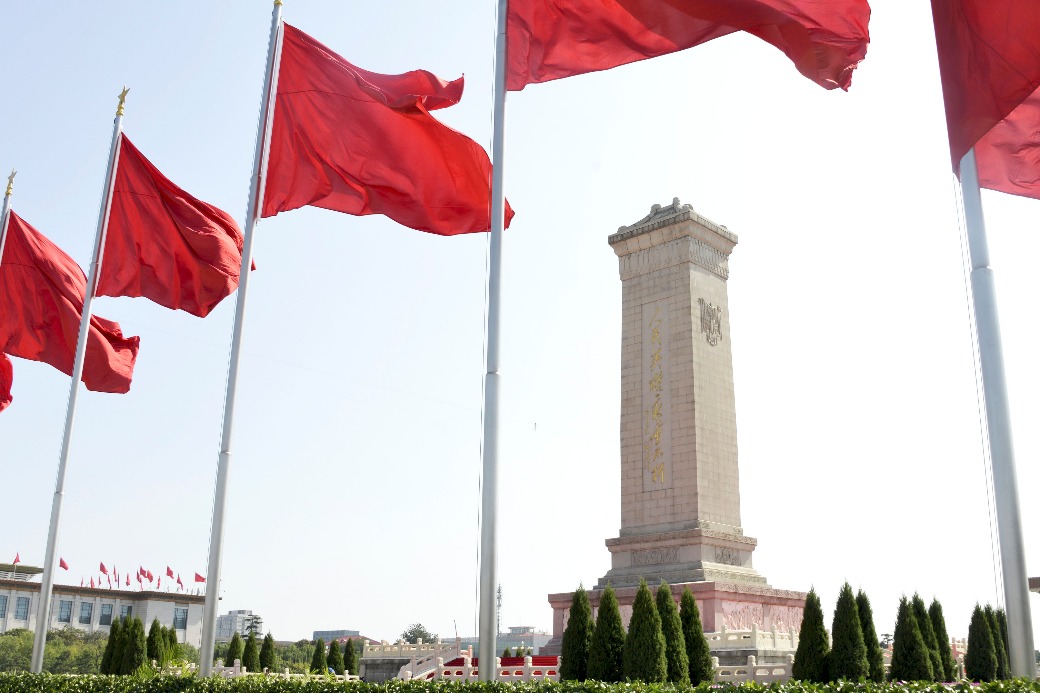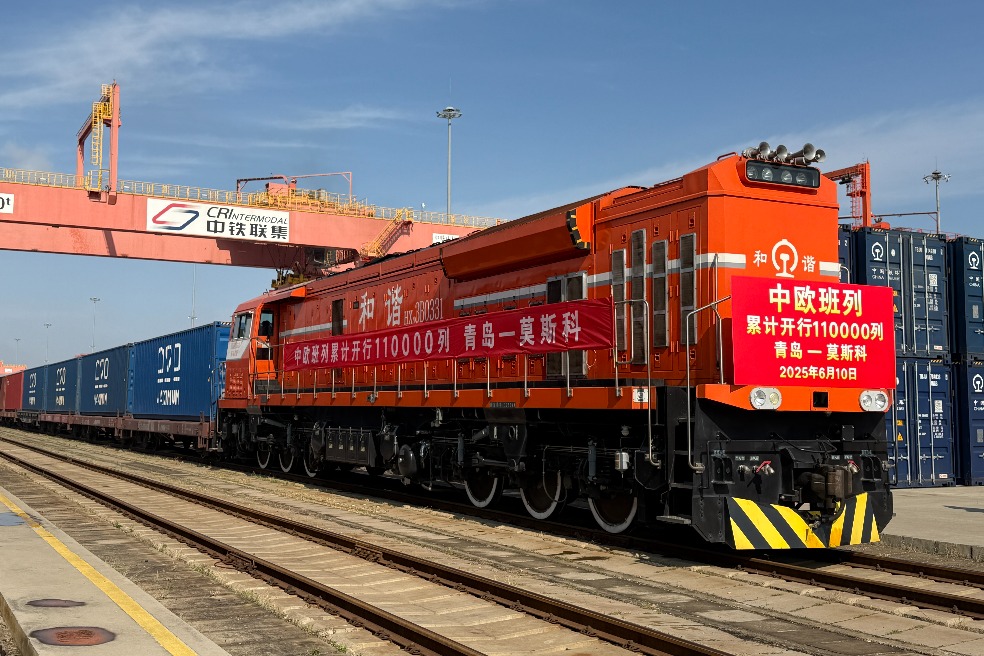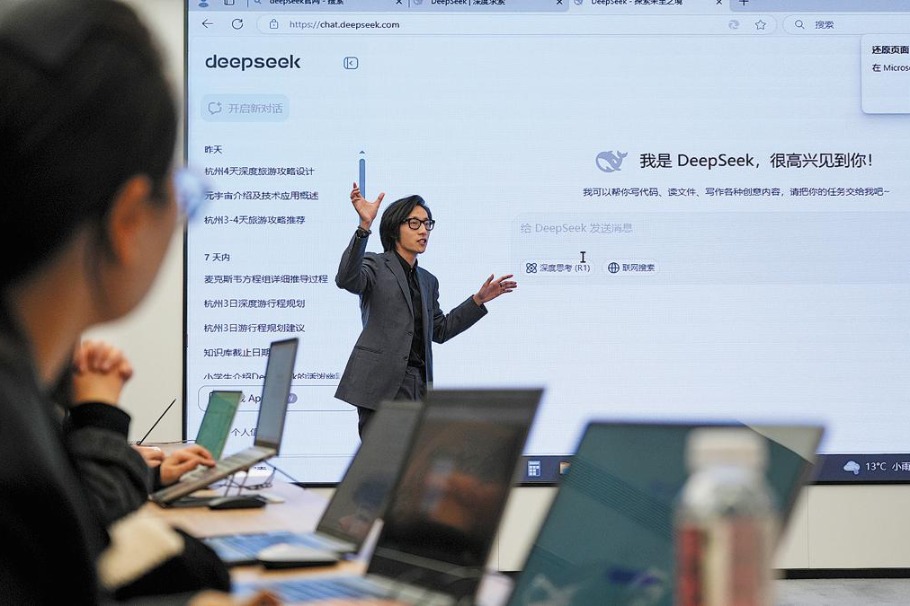Shanxi doctors devoted to medical mission in Djibouti
Chinese team overcomes challenges to help African patients

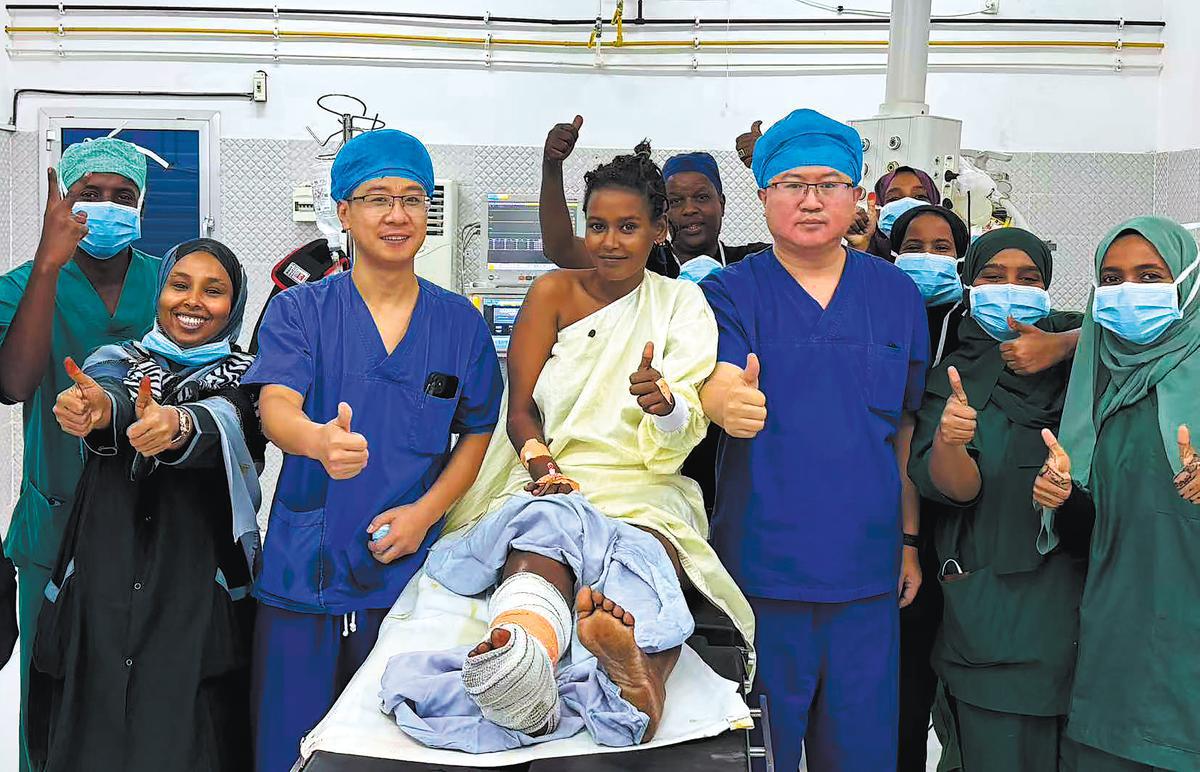
Zhu Feng's first glimpse into a career in medicine came from his grandfather — a barefoot doctor dedicated to serving their rural community in Jincheng, Shanxi province, around the 1990s despite scarce resources.
Now 37, Zhu has not only followed in his grandfather's footsteps and become a general surgeon at a major hospital in his hometown, but has also taken on a medical mission in the remote African nation of Djibouti that tested his medical expertise and endurance in limited environments.
Zhu is a member of the national foreign medical aid team dispatched to Djibouti in June last year. The team comprises 12 members, including nine from the Jincheng People's Hospital where Zhu works.
Djibouti sits at the southern entrance to the Red Sea, with a harsh, dry climate and a mostly barren landscape. Wang Yinzhen, head of the medical aid team, said the nation's medical infrastructure and equipment are outdated and drug supplies are unstable.
"We were concerned that a lack of appropriate instruments may hinder progress of some routine operations, so we had put much work into communicating with health authorities in Shanxi province and our hospital to secure a batch of equipment and medications beforehand," she said.
Language barrier was the biggest trouble in the early days of their arrival in the East African nation where most local people speak either Somali or French.
Zhu said that Chinese doctors learned French seven months in advance but still had to rely on local nurses for interpretation initially.
"We then devoted our free time to memorizing medical terms and everyday phrases," he said. "It took me about two months to be able to communicate with the local nurses fairly smoothly."
Zhu specializes in colorectal and anal surgery. However, in Djibouti, surgeons operate without formal specialty divisions, and most patients require abdominal surgeries.
"For me, I primarily treat conditions such as cholecystitis (gallbladder inflammation), gallstones, appendicitis (appendix inflammation), hernias and hemorrhoids. These are common ailments, and with over a decade of surgical experience, managing them is not difficult," he said. "One key difference is that most surgeries in China are minimally invasive, whereas in Djibouti, open procedures remain the norm. For me, this has been an opportunity to refine both my surgical skills and my understanding of diverse techniques."
By the end of April, the team had received over 27,000 outpatient visits, provided hospitalized treatment to over 12,000 patients and conducted nearly 8,300 sessions of acupuncture and massage therapies. It had also carried out about 3,000 surgeries and handled about 1,800 emergency cases.
Wang said that Chinese doctors have pioneered the use of nine novel technologies inaccessible locally in the past.
As a traditional Chinese medicine practitioner from the Jincheng People's Hospital, Wang has played a key role in introducing the charms of acupuncture to local people.
One of the first patients she received was a stroke patient in his 80s, who regained the ability to walk slowly with the support of family members after two courses of treatment. "This change seemed nothing short of a miracle to the family and they would enthusiastically share with other patients the effects of TCM," said the 42-year-old team head.
Wang said that at present, about 70 percent of patients visiting the TCM department are diagnosed with facial paralysis.
"Due to low disease awareness, many patients have already had the condition for several months before seeking medical care, making treatment more challenging," she said.
To relieve their symptoms, Wang and her colleagues strove to utilize a variety of acupuncture skills, such as press needle acupuncture where tiny needles are left under the skin for several days to provide prolonged stimulation, as well as the pestle needle therapy that combines with TCM massage techniques.
"Traditional medicine has deep roots in Africa and local people have a natural affinity for natural remedies, which aligns with our mission to promote TCM culture," she said.
"Despite the language barrier, some African patients would hold my hands and say 'xiexie' — Mandarin for 'thank you' — with a strong accent, just to express their gratitude," she said. "It fills me with pride to share the treasure of TCM in a distant land."














